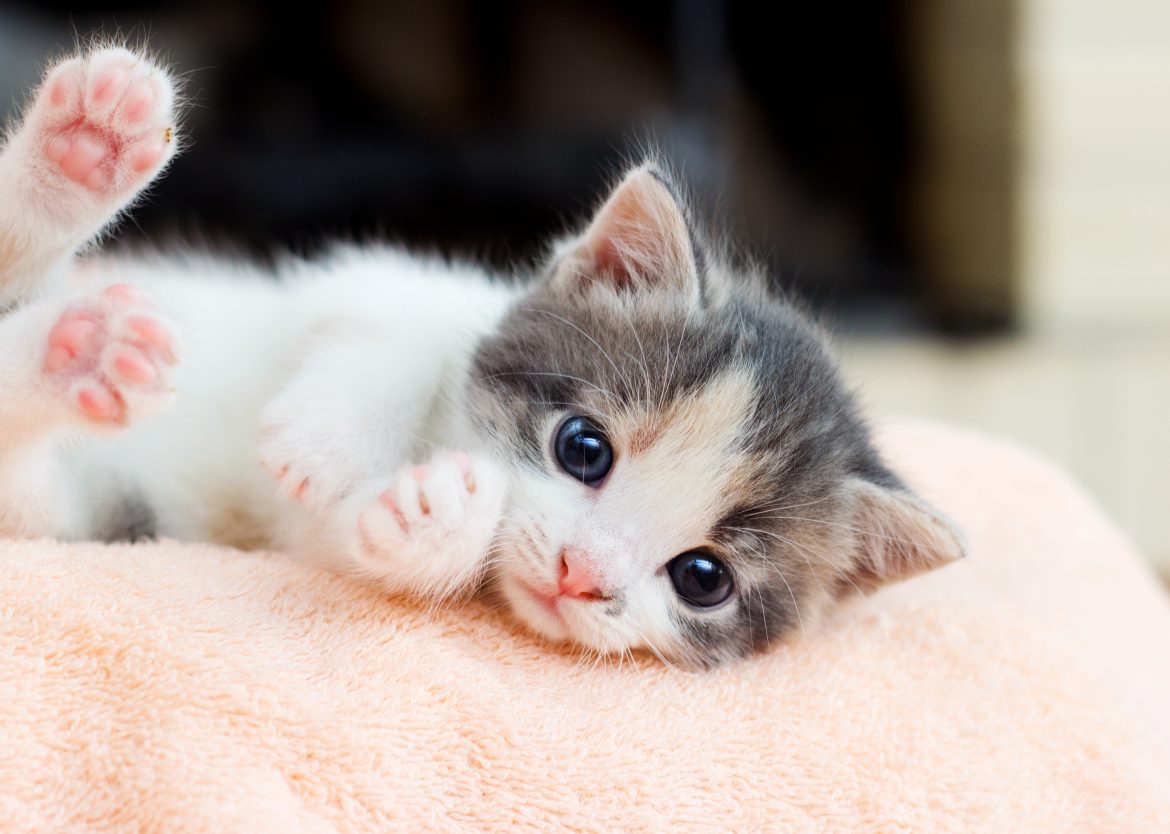Why it pays to have insurance for your newest fluffy family member
Kittens, oh how these sweet little precious bundles of joy bring such warmth and happiness into our lives. Their playful and affectionate natures, their fuzzy paws, little pink noses, and fluffy and soft fur makes us want to spend all day cuddling them and playing with them. But pet insurance for kittens is more important than you might realise.
Having a new furry member in your family is such an exciting time in any paw parent’s life. Buying them new toys, a bed (which they will probably never sleep in) and making sure they eat all their food are just some of the responsibilities that come with getting a new pet. Pet insurance, however, is often the last thing to cross a new pet parent’s mind.
Read this: 3 Essential Things Every First Time Cat Owner Needs
Why should you insure the health of your young and healthy pet?
In your mind, it might not have much financial sense. And whilst you might contemplate the prospect of pet insurance when your pet is older and thus more prone to health risks, getting pet insurance for your new, young pet is not exactly top of mind. And we get it. But as it turns out, younger pets are often more prone to getting themselves into risky situations and putting their safety and their wellbeing at risk.
5 Reasons Pet Insurance for Kittens Just Makes Sense
1. Curious kittens are prone to accidents
Whilst your little kitten might be entertaining to watch and play with as they explore and discover their new home, their curiosity can also increase their risk of getting into tricky situations that can lead to injuries and accidents.
Although kittens are small in size, they are also clumsy and might not always land on their feet. Kittens have a high risk of falling from heights and swallowing strange things. The cost of a vet consult is anywhere between R350 and R750 (depending on where you live and who your chosen vet is).
If your pet is injured in an accident, then an MRI scan can cost R9 500 and additional diagnostic tests such as X-rays can cost R1 000 to R3 000. Then the costs of specialised surgery cost anywhere from R10 000 or more. Oh, and don’t forget that animal hospitals charge as much as R2 000 a night to keep your pet overnight after an operation.
Related: 9 Toxic Foods for Cats (We Would Never Have Guessed #8)
2. Your kitten’s immune system is not fully developed and is prone to diseases
Younger cats are more susceptible to disease and illness than adult cats. This is because their immune systems are immature. Your kitten is exposed to new smells, sights and possible pathogens (disease-causing organisms) that his or her immune system is not fully prepared to fight off yet.
Whether you got your kitten from a breeder, adopted her from a shelter or from a friend, adjusting to a new home can place stress on your kitten’s immune system which can further weaken her immune system.
Some common conditions that affect kittens include:
- Gastrointestinal parasites
- Ringworm
- Ear Mites
- Upper respiratory infections
- Flea Infestation
With pet insurance, routine care cover will help protect your kitten from any serious disease developing as your vet will be able to detect and treat any serious health concerns before they progress into something more serious. With Oneplan Pet Insurance, we also include cover for day-to-day costs such as tick and flea control.
Discover: Everything You Need to Know About Cat Flu
3. Kittens can suffer from hereditary and congenital conditions
Just like humans, pets are also at risk of these kinds of conditions, which can be very expensive to treat.
What are hereditary conditions?
Hereditary means an illness that was passed from your kitten’s parents or is a result of your kitten’s specific breed which presents itself with clinical signs at some point in your cat’s life. Some examples of these issues include hip dysplasia, elbow dysplasia, mange, displacement of the patella, entropion, ectropion and cherry eye.
What are congenital conditions?
Congenital means a condition existing at birth and often before birth or that develops during your kitten’s first month of her life.
4. Pet insurance cover can begin at a young age
When it comes to pet insurance, how young is too young? In general, your pet needs to be older than 8 weeks. This is roughly the age that most new pets are adopted. Pet insurers have designed their cover to start at a young age because they know that your pet’s health matters and you will want to ensure your kitten receives the best possible care without you having to break the bank to get it.
5. Range of pet insurance plans for you to choose from
We always highly recommend Oneplan Pet Insurance because you are bound to find a pet insurance plan that not only suits your budget but suits your pet’s health needs. They have a wide range of pet insurance plans for you to choose from, from their pet accident cover (where age limits do not apply) to their plan with all the bells and whistles – The Pet Super Plan. Their more comprehensive plans include cover for vet visits (they also pay you before you see the vet) and amazing accident cover benefits for the things you don’t see coming.
Enjoy this precious time spent with your new furry bundle of joy knowing his or her health is covered.
Yours in Not-So-Average Pet Advice,
The Petinsurance.co.za Team



